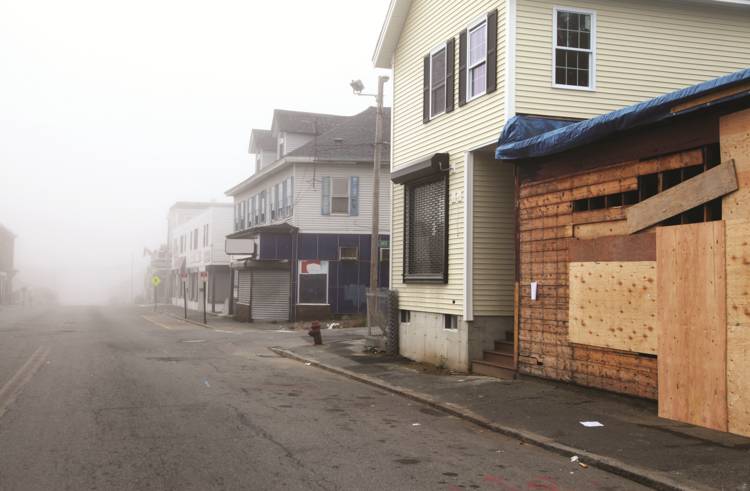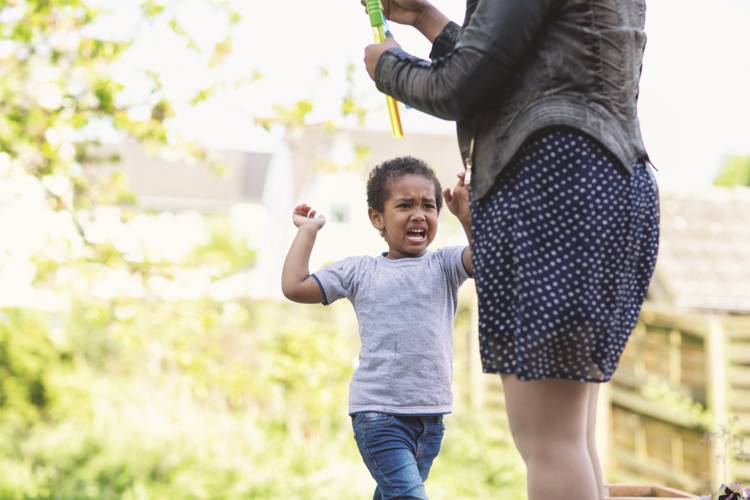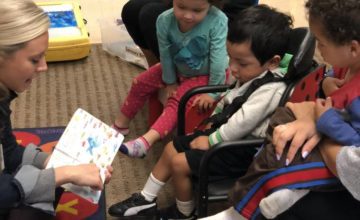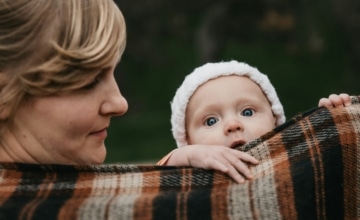Virginia “Ginger” Bial, Andrea Hazen, and Kristen Sylvester, Rady Children's Hospital, San Diego, California

Abstract
This article describes the development and implementation of an integrated early childhood mental health and caregiver support program that uses a transdisciplinary approach to engage families and systems, maximize service efficiency, and ultimately create a next generation of safer families. A case example illustrates a family’s journey through services, and a range of perspectives, including leadership and direct service staff, are presented to illuminate the impact of the services. The authors hope to inspire and encourage other early childhood programs to address the needs of caregivers directly in order to continue to move toward an intergenerational model of healing.
1 All names and identifying information have been changed.
Carla’s story illustrates how the experiences of children, particularly young children, are intertwined with those of their caregivers, and that honoring this interconnectedness plays a critical role in effective treatment. This article will describe an early childhood mental health program that initially started with a dyadic focus on young children and their families, but then identified the need to grow, transition, and augment services in order to more directly meet the needs of caregivers.
The KidSTART program was established at Rady Children’s Hospital San Diego through a contract with the County of San Diego Behavioral Health Services, First 5, and Child Welfare Services in 2010. The goal was to create a continuum of developmental and mental health services to assess and treat extremely vulnerable young children from birth to 5 years old with complex needs, whom we know to be at the highest risk for child abuse and neglect, including death related to child maltreatment (Children’s Bureau, 2020). Within this collaborative program that includes mental health services, developmental services, and service coordination, KidSTART’s early childhood mental health therapists at the Chadwick Center for Children and Families provide trauma-responsive services to children and their families using evidence-based modalities.
For years, the mental health team watched children get better as the needs of the caregivers went unmet. Young children’s progress in treatment is often closely tied to that of their caregivers’ well-being, which is especially true when caregivers are struggling with their own mental health, trauma, or substance abuse challenges. The caregiver’s challenges contribute to the complex social–emotional and developmental needs of the children, and the immense stress on caregivers can often overwhelm them. Although caregivers were integrated into children’s treatment and received support from the child’s therapist, we recognized that additional services were needed in order to fully address the range of needs presented by different types of caregivers, including birth parents, grandparents, and nonfamilial resource parents. We, as leaders, began sharing these concerns with county representatives and in community meetings, offered local trainings on the subject matter, and documented the importance of the system supporting the child, the child–caregiver relationship, and the caregiver. These services for caregivers were essential if we truly wanted young children to gain the most from their time in treatment and for them to sustain their gains after treatment ended. The County of San Diego agreed; in 2015, the Health and Human Services Agency’s Behavioral Health Services, through the Innovations component of California’s Mental Health Services Act (MHSA), funded an integrated program called the Caregiver Wellness Program, to offer screening, assessment, community linkage, and group therapy directly to caregivers with a behavioral health need. The years of promotion and education with a collective, steady voice paid off. Over time, and through a collaborative effort with Rady Children’s Hospital San Diego, the county was able to determine that this need would be an ongoing part of a larger landscape of needs and worked to identify how it may align with specific available funding sources. Local early childhood mental health experts validated the importance of the role of the caregiver’s health, and in 2015 when the next 3-year cycle of MHSA Innovations funding became available, the county moved forward with implementation. This was the first time that we were aware of when transdisciplinary services for multiple generations of family members would be able to be offered under the same roof in our county. We were ecstatic! The caregivers would no longer have to tell their family’s story again and again. They would not have to re-engage, build trust, and establish rapport again with another behavioral health provider. They did that already at KidSTART. They met the team, they typically trusted the team, and now the team would extend services to their needs, not only those of their young children.
The initial excitement quickly turned into focused energy to build an entire program for adults alongside a program created for young children. Core areas that needed to be developed included the eligibility criteria; referral pathway; registration process; screening, assessment, and treatment service flow; staff training and supervision plan; documentation standard; data tracking procedure; and evaluation protocol. Implementation began within 60 days of funding. Over the course of the next 18 months, the program design was reconfigured several times because outcomes were not as expected. Caregiver participation was minimal, and staff burnout and secondary traumatic stress were on the rise. We did not give up hope and with time, perseverance, and much humility, KidSTART’s mental health program was transformed into the impactful integrated program that stands today.
Overview of Caregiver Wellness Program Services

Parent care coordinators often have life experiences similar to the families’ experiences that help them develop shared perspectives with the caregivers. This deeper-level connection allows for a profound sense of trust and “knowing” that helps to hold the caregiver while in treatment.
The Caregiver Wellness Program truly reflects a transdisciplinary approach that includes the caregiver, natural supports, caregiver’s therapist, child’s therapist, administrative staff, and individuals with “lived experience” called parent care coordinators. A continuum of services is provided to address the unique needs of caregivers, including screening, assessment, care coordination, group treatment, and brief individual therapy.
Screening and Assessment
It was apparent from the onset that services for both caregivers and children needed to be seamlessly integrated. With that in mind, the administrative assistant starts the conversation immediately after the family walks into the clinic, explaining that KidSTART’s mental health program is specifically designed to offer support to both the young child and the caregiver at the same time and under the same roof. She shares that the child-focused program has been in existence almost 10 years and has learned that children are limited in their ability to make and sustain progress unless the caregiver’s own unique and individualized strengths and needs are also interwoven into the treatment plan.
During the initial meeting, caregivers complete standardized screening tools on anxiety, depression, trauma, and substance use, and they meet their parent care coordinator, who describes the purpose of their role in a caregiver’s life. The next contacts typically include a virtual or face-to-face child–caregiver relationship assessment, home visit, and school/child care visit by the therapist and several additional home visits by the parent care coordinator to further strengthen their relationship with the dyad, identify protective and risk factors, and assess the family’s relationship with the community and local resources. Within the following weeks, the therapist develops a specific treatment plan for the child and has the option of administering additional adult standardized measures targeting specific mental health and substance use symptoms. The caregiver, therapist, and parent care coordinator collaborate throughout the course of the screening and assessment process. They hold a caregiver support team meeting to develop a caregiver wellness plan, which is a strength-based caregiver service outline. The assessment phase then formally transitions into treatment provision for the caregiver which could include coaching, group therapy, individual therapy, and warm handoffs to other community providers. Both child and caregiver services are evaluated throughout the course of treatment and services are often staggered according to need.
Care Coordination
With their “lived experience,” parent care coordinators give insight into the struggles families face, and their peer perspective helps them connect with the family on an emotional level, gain understanding of their values and cultural norms, and advocate, as needed, for the family’s perspective throughout the treatment process. Parent care coordinators draw on their practical lived experiences along with more formal training provided by the program. This training includes motivational interviewing and solution-focused interventions, to address a wide range of issues that could impede a family’s ability to engage and sustain in therapy. Guided by the wellness plan created during the caregiver support team meeting, the parent care coordinator ensures that the caregiver is connected to a variety of resources ranging from those that address basic needs such as housing, food assistance, and financial aid, to therapy services provided by the program or by community agencies.
Caregiver Groups
The program offers a variety of groups across three sites to support caregivers in increasing their understanding of their children’s strengths and needs, accessing mutual support, decreasing isolation, managing their own symptoms, and working to improve their attachments with their children. Groups are offered at a variety of times and days and in English or Spanish to provide caregivers the most opportunity to participate. Therapeutic children’s groups are offered concurrently with the caregiver groups so that child care barriers do not limit caregiver participation and so that child clients can receive extra support in learning skills that will help them in their treatment.
The caregiver groups include the following: Psychoeducation Group, Empowerment Group, Therapeutic Dyadic Play Group, Executive Function Group, and Family Workshops. The Psychoeducation Group is a 10-week group for caregivers who are interested in learning in-depth information about their young children with complex needs. The Empowerment Group is also a 10-week closed group with a focus on supporting caregivers who are experiencing symptoms of depression, anxiety, or toxic stress. The Therapeutic Dyadic Play Group is an 8-week group based on a structured relational model designed to support positive parent–child interactions and the development of healthy attachments. The Executive Function Group is a 12-week group co-facilitated by a mental health therapist, an occupational therapist, a speech therapist, and a behavioral specialist. This group targets children who have executive functioning deficits, such as from complex trauma or from in-utero exposure to alcohol and drugs, which encompasses a large portion of the children we serve. While children are receiving developmental services, the mental health therapist facilitates a caregiver-only psychoeducation group to review topics such as organization, planning, emotional regulation, and flexibility. Caregivers are then supported to practice these skills in-vivo with their children, with the support of all the therapists. Not only does this group provide children with many developmental services in one place, but also arms caregivers with knowledge of executive functioning, to help relieve negative projections, reduce family stress, and support proactive parenting strategies.
The program also offers a family workshop series on a variety of topics including self-care and self-compassion, kinship support, trauma-responsive parenting, early school readiness, and building healthy parent–child attachment. The series includes a family-style meal for caregivers and children beforehand to promote a sense of safety and build relationships among participants. Therapeutic child care is provided with a focus on learning skills related to the caregiver workshop’s theme.
Brief Individual Therapy
As we implemented the Caregiver Wellness Program, we identified a high need for mental health services specifically for caregivers. Fortunately, in 2018 when MHSA funding ended, the county obtained funding through a community-based block grant from the Substance Abuse and Mental Health Services Administration to continue the program and provide a limited amount of short-term individual counseling for caregivers. Adult treatment begins with a review of all referrals by the program’s clinical supervisor, who screens to ensure that the caregiver is appropriate for short-term treatment and identifies any potential risk or safety issues that would need to be addressed. The assigned adult individual therapist then reaches out to the caregiver and arranges an intake session to begin rapport building immediately from the first phone call. The adult’s therapist meets with the child’s therapist to gather information about the potential needs of the caregiver and how these fit in with or are impacting the child’s treatment.
The adult’s therapist and the caregiver then meet and complete an assessment over one to two sessions using Chadwick Center’s Trauma Assessment Pathway (Chadwick Center for Children and Families, 2009) comprehensive assessment process. A treatment plan is co-created and individualized depending on the caregiver’s unique needs and strengths, and an initial duration and commitment for treatment is agreed upon. The target length of treatment is 12 sessions, and evidence-based modalities, including acceptance and commitment therapy, motivational interviewing, and cognitive processing therapy, are used. Collaboration with a caregiver’s parent care coordinator and their child’s therapist occurs throughout treatment to the extent that the caregiver is comfortable with this and depending on their unique situation.
All services are co-located, which appears to increase feelings of trust and decrease anxiety about new locations and processes. In addition, all therapists providing adult services are also early childhood mental health therapists working with children and families within the KidSTART mental health program, facilitating dyadic therapy, groups, and case management.

Providing services in the community, such as at homes, schools, and child care settings, gives teams insight into the strengths and needs of the family and builds bridges with other providers.
Carla’s Progress
Later that first week, I met with the parent care coordinator, who reported that she and Carla had had a long conversation by phone the day before, and that she would be heading out to the home the following week to meet with Carla in person. I talked to the adult group therapist for the psychoeducation group, added Carla to the list, and completed the paperwork to make sure she was registered.
Carla started the psychoeducation group, and Ben attended the therapeutic children’s group simultaneously until successful completion. Carla then immediately requested to enroll in the Empowerment Group. Carla previously steered away from anything that was focused on her own needs, but after completing one group and building trust in the program, the process, and the providers, she shared that she felt it would be helpful to learn ways to help herself with her own needs. She completed the Empowerment Group, and what she learned there showed up in dyadic sessions when she started to notice her own emotional responses to Ben’s behavioral challenges. She became able to use strategies in sessions and during interactions with her son so that she could help herself remain calm and exude that calmness with Ben. They began to make more and more progress in treatment. Ben even started to use some of the same calming strategies he saw his mother using regularly.
Lessons Learned
The program manager remembers the implementation challenges.
A Leader’s Perspective
Despite our excitement and hopefulness, the initial implementation did not get off the ground without a hitch. The most significant challenge was us, not the system and not the families. We naively thought that the team would be as excited as leadership was with this new source of funding to address an identified service gap. The team was initially enthusiastic about this opportunity, but the enthusiasm quickly turned to stress when the detailed integrated service flow was mapped out and presented one autumn afternoon. We can still picture the faces when the meeting started–smiles, light joking, and a feeling of hope in the air. Celebratory food was provided, colorful handouts abounded, and a handy slide presentation was ready to go. The mood seemed to shift about 20 minutes into the meeting. The meeting ended in silence. Over time, we gained clarity on what was happening. After a few weeks of implementation, therapists and parent care coordinators were sharing in reflective supervision about feeling tired, overwhelmed, and questioning the ethics of providing treatment to both young children and adults under the same program. Administrative associates were also concerned about the additional stress the forms placed on caregivers. After further reflection and taking time to pause, we realized that it was likely not only the amount of additional work or number of forms that brought them to question the program, but it was also what was coming up emotionally for them. They shared that they felt it was their responsibility to hold the experiences of each family member involved in services. They had access to a wealth of incredibly helpful, yet emotionally laden experiences from these families who often presented with generations and generations of shared and consecutively occurring trauma histories. The entire team, administrative associates included, was now holding not only the complex trauma history of the young child but also the trauma history of the caregiver, in addition to the separate yet influential layers of risk factors. Trauma exposure increased, and the team became increasingly vulnerable to secondary traumatic stress.
We wish that we could say that when we identified the need, we were quickly able to fix it. The reality is that it took a couple of years to simplify procedures and for the team to develop the skills and competency to sit with the caregiver stories, as well as the stories of the young children, to be emotionally present and not fixate on the day’s discussions while driving home from work. We, as leaders, needed to become humble and slow down to ensure that we were holding the needs of the team so that they could, therefore, hold the needs of the caregivers and young children in our care. We started by listening and encouraging team members to speak up. We had to sit with our own emotional discomfort of learning that what we thought was a well-developed masterpiece actually fell short. Then, we needed to roll up our sleeves and get to work. We decided to start with one problem that would help all members of the team, which was to simplify the protocols and condense the forms. Then, and only then, did we request to engage in a reflective conversation about their perspective of the program and the impact of the program on their own beings and their own sense of self as professionals in this field. That is when we truly were able to peel back the shell to get to the core of what was driving their apprehension. They shared about difficulty sleeping and worrying often about the welfare of the caregivers and children. Over time, they came to see that they were having their own reaction to the work. Then, we were finally able to genuinely support them and their own suffering. Once this occurred, things began to shift. Team members started sharing examples of how caregivers were actually getting better (see Box 1). The caregiver participation rate increased, and groups and individual sessions were humming along. Parent care coordinators felt like they were instilling hope in caregivers by facilitating warm hand-offs to other community providers and helping them increase their support system. Over time the team—and leadership—have come to realize that our work is forever both challenging and rewarding. Together we have found a way for the team to feel held so that they can hold the caregivers, while the caregivers in turn come to realize that they can compassionately hold and protect their young children in their arms and in their minds. Maybe, just maybe, this is the key to ending the devastating cycle of abuse.
Box 1. In Their Own Words (Voices From Caregivers)
Caregivers provided feedback about the program:
KidSTART helps me understand what my child is going through. The thing with KidSTART is that it’s not just like “our duty stops here”; it’s “our duty goes until the needs of the child are met,” and that is hugely helpful for us as a family. So if that means supporting me they do that, it’s that all-encompassing support that really makes a difference to us. It’s like
having a family that can help out.
I never felt judged nor received negative feedback from the therapists or parent care coordinator that I was a bad parent due to my child’s mental and emotional needs. On the contrary, I was embraced, empowered, and educated on how to be emotionally present as a parent for my child.
Having attended the groups has taught me first that I have to be well in order to help my child. I realized that I needed professional help for my mental health in order to process my own trauma and help my child with his own.
The therapists understand the issues that I am dealing with and they support me. The parent care coordinator is a lifeline that I didn’t even know I needed. She is like a friend, a sister, she came, there was no judgment. So how do you say “thank you” to somebody that provides you that? You don’t. You’re eternally grateful.”
A Therapist’s Perspective
One therapist recalls her experience of the implementation process.
The Roll-Out Meeting
We had a staff meeting. The gist of the message was this: as part of our new Caregiver Wellness Program, therapists would be responsible for assessing not only the mental health of the child, but also the caregiver. We would need a separate one-to- one appointment with just the caregiver and had a 10-page packet of questions to ask them, including their family and relationship history, medical questions, their stressors or needs, and a comprehensive checklist of traumatic experiences. I felt a sense of being overwhelmed, and my eyes welled up with tears. Then someone brought up the idea that we would be hearing even more stories of trauma than we already were, and my thoughts continued. Did they really think I could double the trauma I was carrying and it would just be fine?
Trying It Out
The first few caregivers that I invited to enroll in our Caregiver Wellness services declined. They said they didn’t have any needs themselves and just wanted help for their children. Once someone agreed, I spent about 45 minutes sorting through the handouts from our rollout meeting, trying to figure out what I had to do first. I was able to schedule with this caregiver fairly easily, did my first caregiver assessment, and it went fine. The clinical skills weren’t hard; they were basically the same ones I used with caregivers all the time in dyadic and family treatment with their children. The caregiver shared about her past domestic violence experiences, and I offered empathy and worked with her on a safety assessment. I felt good that we were able to talk about it, and I offered her some resources for domestic violence groups in our area, which she declined. She shared that she just wanted to focus on her child’s treatment.
Then came the hard part: I had to connect her with a parent care coordinator, they had to complete their own complex and paperwork-heavy assessment process, and then we all had to meet for a caregiver support team meeting within about 45 days of intake. Everyone finally got to the meeting after encountering many obstacles, and then we realized we had nothing to talk about. I had already offered resources to the caregiver, as had the parent care coordinator. The caregiver didn’t see herself as having any needs except as it related to her children. I left that day with a sense of confusion. I had spent probably 90 minutes over 2 weeks connecting this caregiver and the parent care coordinator and setting up this meeting, then about 40 minutes in the meeting itself, and it didn’t seem to pay off. Over the next 6 months, this process continued.
I would also explain the program at every intake and offer it to caregivers, but my enrollment rate hovered right around 15 or 20%, nowhere near expectation. I felt like I was missing something: Why couldn’t I get my head around the process and make this work? It began to feel like a personal failing: Maybe I wasn’t cut out for this job after all.
The Struggle
Once the Caregiver Wellness Program had been rolled out, we began to have check-ins at our team meetings in order to monitor implementation. We discussed why caregivers weren’t enrolling at as high a rate as expected. The therapists shared barriers the caregivers presented when we offered the program, as well as the onerous paperwork and logistical processes that impacted our ability to follow through and to fully embrace the program. The therapists connected later and discovered the problems were ones we all shared. We believed in the program and thought it was a good idea, but we were struggling to cope with not only the extra requirements, but also the mental work of integrating a complex process into what we already did every day. We tried to stay positive, but there was a sense of failure among the team; we all wanted to meet expectations, fulfill the program vision, and be productive and effective therapists, but we couldn’t seem to juggle it all effectively enough to meet those goals. Our morale was sinking quickly.
The Shift
Eventually, leadership worked with us to shorten the forms, simplify the logistics, and make more elements flexible based on clinical need. I began to feel a sense of hope: Maybe I could do this new process and make it work. My sense of competence as a therapist slowly began to recover. The therapists took it upon themselves to create a complex spreadsheet that laid out each session from intake on, with an integrated flow of both the child and caregiver processes. I walked out of that meeting feeling a sense of competency and empowerment that I hadn’t felt at my job in months. Enrollment increased, groups started to thrive, and things began to roll along more smoothly. I felt competent when I explained the services to caregivers and navigated the paperwork requirements. I felt that finally I could do this work effectively and with passion.

The cumulative toll of paperwork, holding suffering, and not feeling heard by leaders can bring a team to a critical breaking point if not addressed.
An Update on Carla
Carla continues to meet regularly with her parent care coordinator and continues to work on increasing the level of support in her life. She rejoined a faith community that she had previously left, and even took a leadership role there. She continues to work on managing her anxious feelings and self-criticism so they don’t get in the way of her goals, and she reports that she still has a way to go toward being where she wants to be in life, but “things are improving.” She and Ben continue to attend Ben’s dyadic therapy every week and are each making steady progress toward their goals.
Conclusion
Time and much reflection have given the team the opportunity to cherish the many lessons learned throughout the process of implementing an integrated transdisciplinary young child and caregiver wellness service model. Each struggle and achievement has allowed us to pause at key moments to connect and jointly determine the next step on this programmatic journey. Leadership learned that we do not always know best, that we make mistakes, and that listening with a humble mind and willingness to do what it takes creates strong teams and successful outcomes. The team learned that peer support and healthy team relationships validate our unspoken suffering, simple processes matter, being heard by leadership prevents burnout, and families absolutely read and respond to our internal processes.
We, as leaders, therapists, parent care coordinators, and administrative associates, believe in the Caregiver Wellness Program and each other even though some of us still hold different impressions of what happened. We decided that it just makes the program richer. We have seen caregivers who had no hope, become hopeful; young children hold their pain in their little bodies until it released when their stories were told; and large systems respond to small programs because they believe in their work. We, as a community in San Diego, are slowly shifting how care is delivered by healing the young child through also holding the caregiver.
Acknowledgments
KidSTART Clinic receives Early and Periodic Screening, Diagnostic and Treatment funding from the County of San Diego Health and Human Services Agency, Behavioral Health Services. Funding for KidSTART Caregiver Wellness Program is provided by a Substance Abuse and Mental Health Services Administration grant through the County of San Diego Health and Human Services Agency, Behavioral Health Services.
Author Bios
Virginia “Ginger” Bial, LCSW, has been the program manager of KidSTART Clinic at Rady Children’s Hospital San Diego, Chadwick Center for Children and Families, since the program’s inception in 2010. Prior to this position, she was a supervisor of school-based behavioral health services and the clinical director of a residential program for children. Ginger holds 25 years of experience in the mental health field, with almost 10 of those years specifically in early childhood mental health. She witnesses daily the power of early intervention in changing the developmental trajectory of a child.
Andrea Hazen, PhD, is a research scientist at Rady Children’s Hospital San Diego. She oversees the treatment outcome program for the KidSTART Clinic and the Trauma Counseling Program at the Chadwick Center for Children and Families at Rady Children’s Hospital. With more than 20 years of experience in research and program evaluation, her current work is primarily focused on screening, assessment, and treatment for children and families who have experienced maltreatment and other forms of trauma and on the implementation of trauma-informed practices in child-serving systems.
Kristen Sylvester, LCSW, is an early childhood mental health therapist at KidSTART Clinic. She is a licensed clinical social worker and registered play therapist. She has been with KidSTART for 5 years and previously worked with children and families in the foster care system in Massachusetts.
Suggested Citation
Bial, V. "G.", Hazen, A., & Sylvester, K. (2020). Healing the young child by helping the caregiver: Implementing an intergenerational approach. ZERO TO THREE Journal, 41(1), 38–44.
References
Chadwick Center for Children and Families. (2009). Assessment-based treatment for traumatized children: A trauma assessment pathway (TAP). source
Children’s Bureau. (2020). Child maltreatment 2018. U.S. Department of Health & Human Services, Administration for Children & Families. source




